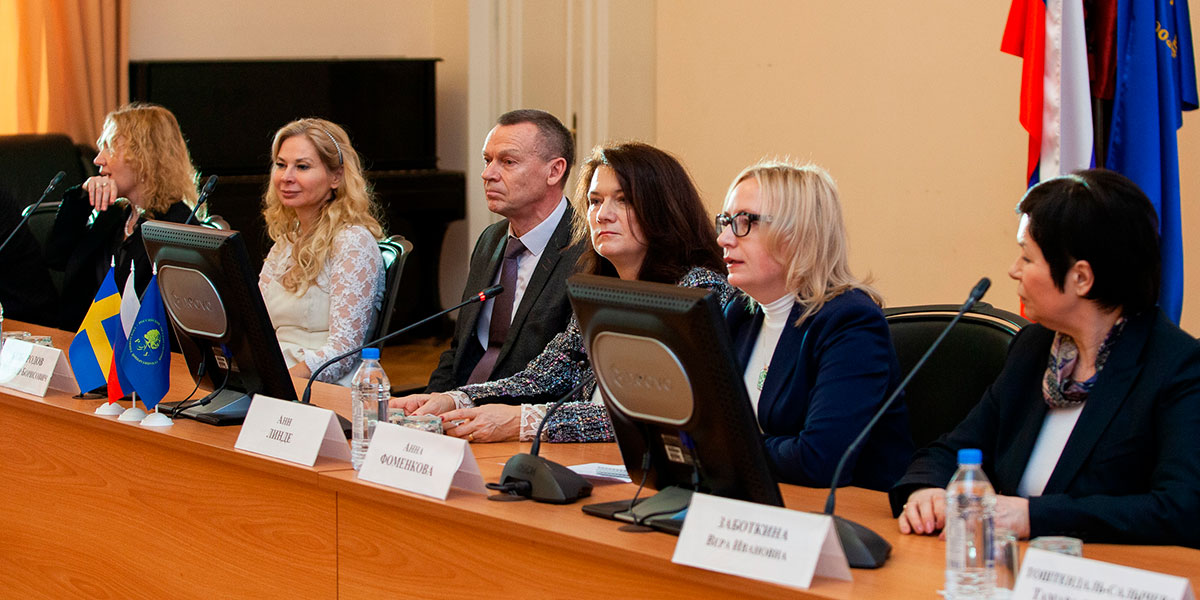
Since 2015 Russian State University for the Humanities has been participating in the Erasmus+ programme. It is the EU programme in the fields of education, training, youth and sport for the period 2014-2020.
Erasmus+ Programme implements the following actions:
More information can be found on the National Erasmus+ office (Russia) website and on the official website of the programme.
One of the change opportunities at RGGU is within the Erasmus+ ICM programme. These opportunities are open for students (BA, MA, PhD) and staff (professors who work full-time at the University and administrative staff). The grant support is provided to the successful candidates.
Student mobility implies spending a semester (5-6 months) in a Partner university. Teaching mobility (mobility of professors) implies delivering minimum 8 hours of lectures during five working days (+ two travel days). Training mobility (mobility of administrative staff) — participation in training activities, improvement of relevant skills and qualifications.
Language proficiency
The Call for applications opens twice a year: in October-November and in March-April. The Call can be found online (on the official University`s website and University`s group in Vkontakte) and offline (on the International Relation Office board 1st floor, building 6 (main).
The list of RGGU Partner Universities within Erasmus+ ICM programme:
If you have any questions, feel free to contact the Erasmus+ Institutional coordinator, Vice-rector for international cooperation, Prof. Vera Zabotkina or Erasmus+ Icm administrator — Yana Zherebtsova (zabotkina@rggu.ru, +7(495)250-6511, building 6, room 203).
The CLE Master Course seeks to provide a high quality preparation reflecting the multicultural aspects of Europe. Since 2018 RGGU has become a full member of the consortium of 8 EU and non-Eu universities: Bologna University, University of Upper Alsace, University of Strasbourg, University of Mumbai, University of Thessaloniki, RGGU, University of Dakar, University of Lisbon.
The CLE Master Course is a two-year full-time academic program.
At the end of the two-year program, after defending their Master’s thesis before an international committee, CLE students receive two or three diplomas issued by the universities of the Consortium where they spent at least one semester.
The language in which the courses are offered may vary according to the University providing them.
The CLE Master Course is a program devoted to improving the quality of European Higher Education Area and strengthening intercultural communication.
The program encourages and supports:
The CLE Master Course aims at providing international students with excellent T-shaped skills in:
Over the years, many additional activities (seminars, conferences, workshops, language courses...) have been entrusted to high-profile scholars/guest lecturers. The CLE intends to maintain and reinforce this successful collaboration pattern.